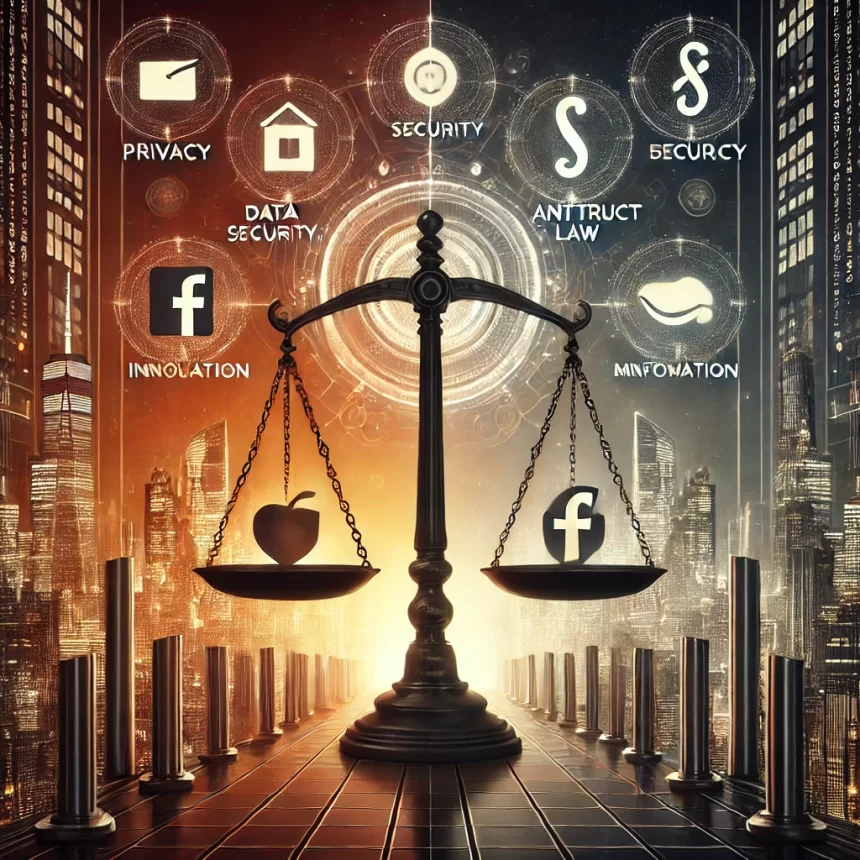The rapid rise of the technology sector, including preeminent players like Facebook, Google, Amazon, and Apple, has led to a heated debate over the need for regulation. As these companies have grown in size and influence, concerns about privacy, data security, market dominance, and misinformation have intensified, prompting calls for stricter oversight. This article explores the key issues surrounding tech industry regulation in the United States, the arguments from both sides and the potential future of regulatory measures.
Privacy and Data Security
One of the primary concerns driving the push for tech regulation is the handling of personal data. Tech giants like Facebook and Google collect vast amounts of user data, raising questions about how this information is used, stored, and shared. High-profile data breaches and scandals, such as the Cambridge Analytica incident, have exposed vulnerabilities and led to public outcry.
Advocates for regulation argue that stronger privacy laws are necessary to protect consumers from exploitation and misuse of their data. They point to the European Union’s General Data Protection Regulation (GDPR) as a model for comprehensive privacy protection. On the other hand, opponents of heavy regulation argue that it could stifle innovation and place undue burdens on companies, particularly smaller tech firms that may struggle to comply with stringent rules.
Market Dominance and Antitrust Concerns
The dominance of a few key players in the tech industry has sparked antitrust concerns. Companies like Amazon, Google, and Apple hold significant market shares in their respective sectors, leading to fears that they are stifling competition and innovation. Critics argue that these companies engage in anti-competitive practices, such as prioritizing their products and services over competitors on their platforms.
In response, regulators and lawmakers have begun scrutinizing mergers and acquisitions more closely, and there have been calls for breaking up these tech giants to promote competition. However, there is also a counterargument that these companies’ scale and integration benefit consumers by providing seamless and affordable services.
Misinformation and Content Moderation
The role of tech companies in moderating content on their platforms has become a controversial issue, especially in light of the spread of misinformation, hate speech, and political propaganda. Social media platforms like Facebook and Twitter have faced criticism for both allowing harmful content to spread and for allegedly censoring free speech.
The debate centers on whether tech companies should be treated as neutral platforms or as publishers with editorial responsibility. Some advocate for stricter regulations to ensure that these platforms do not become conduits for harmful content. Others warn that such regulations could lead to overreach and undermine free speech rights.
The Future of Tech Regulation
The future of tech regulation in the U.S. remains uncertain, with lawmakers and regulators grappling with how to balance consumer protection, competition, and innovation. Recent proposals include updating antitrust laws, implementing stricter data privacy standards, and holding tech companies accountable for the content on their platforms.
As the debate continues, it is likely that tech companies will face increasing pressure to self-regulate and cooperate with policymakers to shape regulations that address these concerns without stifling growth. The outcome of this ongoing debate will have significant implications for the tech industry and its role in society.

















